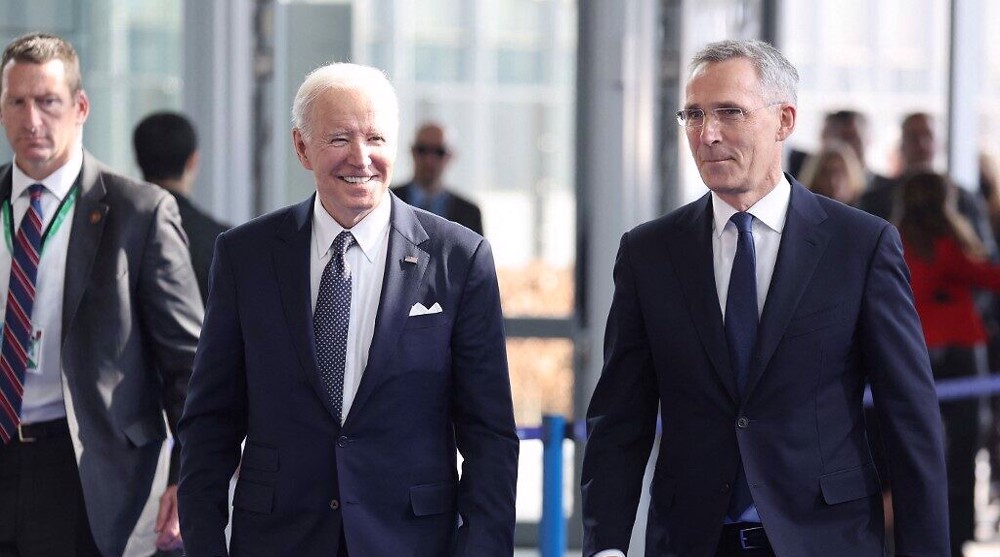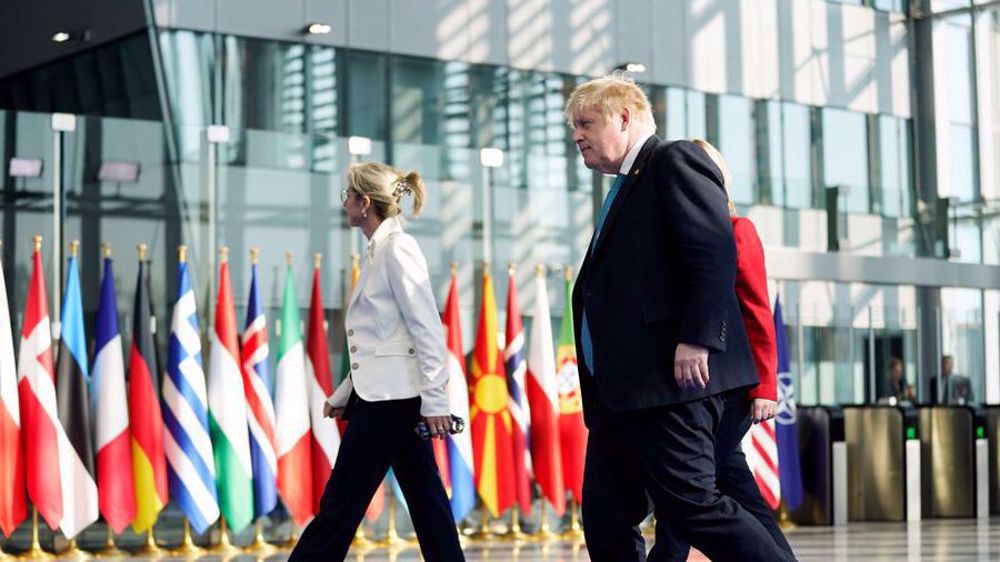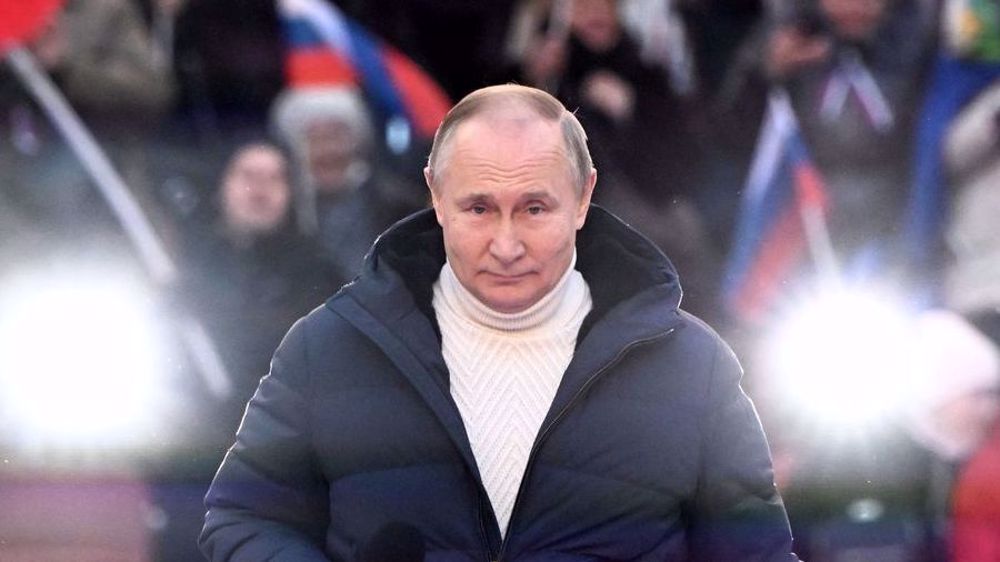Biden administration imposes sanctions on Russian lawmakers, defense companies
The administration of US President Joe Biden announced sanctions on more than 300 Russian lawmakers and dozens of state-owned companies saying that they are connected to the military campaign in Ukraine.
The announcement came on Thursday as Biden met with NATO allies and Group of Seven (G-7) leaders in Brussels to discuss how to deal with Russia.
Biden arrived in Brussels for an unprecedented trio of NATO, G7 and EU summits. He is attending all three meetings and will hold a news conference afterward.
"I’m announcing additional sanctions on over 400 Russian elites, lawmakers, and defense companies in response to Putin’s war of choice in Ukraine. They personally gain from the Kremlin’s policies, and they should share in the pain," Biden tweeted.
Analyst: Biden's ‘democracy’ for Russia is actually punishment for the Russian people
“I have a question for President Biden, the would-be ‘Keeper of the Democratic Torch for the World,’” said an American journalist and political analyst.
“Russia's Parliament is elected by the people. As a matter of fact, considering that the US Congress has favorability rates of around 20% and a re-election rate of about 98%, Russian legislators are far more democratic representatives than their American counterparts,” Don Debar told Press TV.
“So I would like to ask President Biden if he believes sanctioning those legislators for doing what their constituents have been demanding for 8 years is a way to build democracy in Russia. Of course, it isn't; rather, it's a punishment actually leveled at the Russian people for choosing a government that has the nerve to stand up to Washington,” he stated.
The US sanctions target 328 members of the Duma, Russia's parliament, as well as the Duma itself as an entity.
The US has also imposed sanctions on 17 board members of Sovcombank, one of the largest Russian financial institutions, as well as 48 Russian defense enterprises that have been producing equipment for the military, including helicopters and tactical missiles, according to The Hill.
The Biden administration also imposed sanctions on Herman Gref, who is the head of Sberbank, Russia's largest financial institution, and Gennady Timchenko, a businessman.
"While Biden's action against Russian legislators may seem at odds with his words, his action against Russian defense contractors should surprise no one. The US defense contractors have had control of the US government since at least the Eisenhower administration. Here, Biden is simply seeking to injure the competition," said DeBar.
The US and its European allies have also introduced an initiative intended to better enforce existing sanctions on Russia.
The White House said the G-7 and European Union will also try to prevent Russia from using its international reserves, including gold.
"As long as President Putin continues this war, the United States and allies and partners are committed to ensuring the Russian government feels the compounding effects of our current and future economic actions," the White House said in a statement.
The UK also announced sanctions on 65 more groups and individuals, including a private military firm and a major Russian bank.
British Prime Minister Boris Johnson said the US and its Western allies have to “tighten the vice” in sanctions against Russia to force Moscow to end its war in Ukraine.
“It is very important we work together to get this thing done. The harder our sanctions ... the more we can do to help Ukraine ... the faster this thing can be over,” Johnson said.
In addition to the new raft of financial sanctions, the UK government has announced plans to send 6,000 more missiles to Ukraine.
"We need to do more," Johnson said. "And so we need to do more economically. Can we do more to stop him from using his gold reserves for instance, in addition to his cash reserves? The more pressure we apply now, particularly on things like gold, that I believe the more we can shorten the war."
Meanwhile, a top Greek diplomat told The Hill in an interview in Washington, DC, published on Tuesday that the coordinated Western sanctions against Russia over its military campaign in Ukraine are aimed at regime change in Moscow.
Greek Alternate Foreign Minister Varvitsiotis Miltiadis hailed Biden for goading countries to impose coordinated sanctions on Moscow, but lamented Turkey’s absence from the Western push to punish Putin.
Commenting to Press TV, an American political observer said, “It's funny. When gas prices are fully expressed in the United States - along with wheat prices - in the already stressed supply chains, they may well end up getting regime-change, but not in Russia.”
“Biden is already hanging on by a thread, with negative numbers in excess of Nixon's on the day of his resignation. Those wishing for regime change should remember: Beware what you ask for, you may get it,” he added.
The Biden administration has imposed harsh economic and banking sanctions on Russia in response to Russia's military actions in Ukraine.
Biden said the sanctions would limit Russia's ability to do business in dollars, euros, pounds and yen.
The US president claimed that the only other alternative to the sanctions would be to start a “Third World War.”
President Putin said earlier this month that Western sanctions on Russia were akin to a declaration of war.
He also warned that any attempt to impose a no-fly zone in Ukraine would lead to catastrophic consequences for the world.
Putin said his country is defending Russian-speaking communities through the "demilitarisation and de-Nazification" of Ukraine so that their neighbor became neutral and no longer threatened Russia.
"These sanctions that are being imposed are akin to a declaration of war but thank God it has not come to that," Putin said.
‘All wars have rules. All of those rules have been broken’ by Israel
VIDEO | Report flags India’s violation of rights of Rohingya detainees
Turkey's foreign minister meets Syria's de facto leader in Damascus
'Next to impossible' to rescue patients from Gaza's Kamal Adwan Hospital: Director
VIDEO | Vietnam current prosperity
Report blames gasoil exports for shortage at Iranian power plants
VIDEO | Hind Rajab Foundation names Israeli war criminals vacationing after Gaza genocide
VIDEO | Australians rally for Gaza ahead of Christmas festivities












 This makes it easy to access the Press TV website
This makes it easy to access the Press TV website